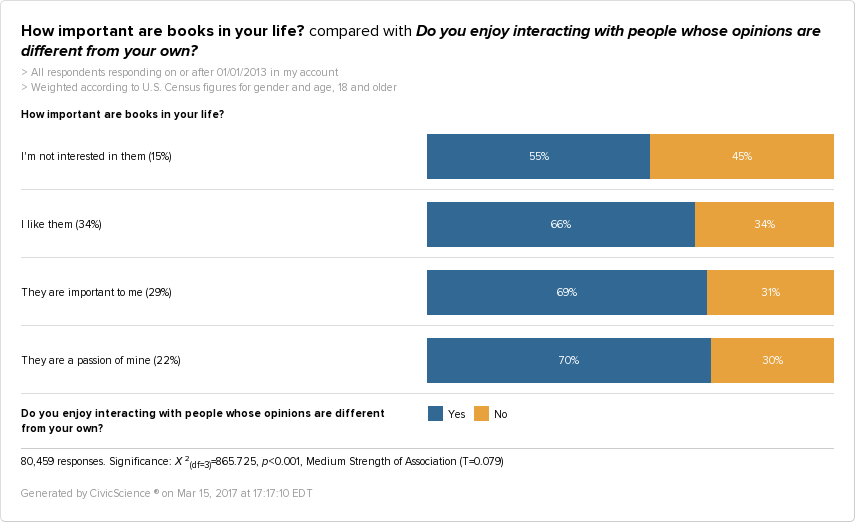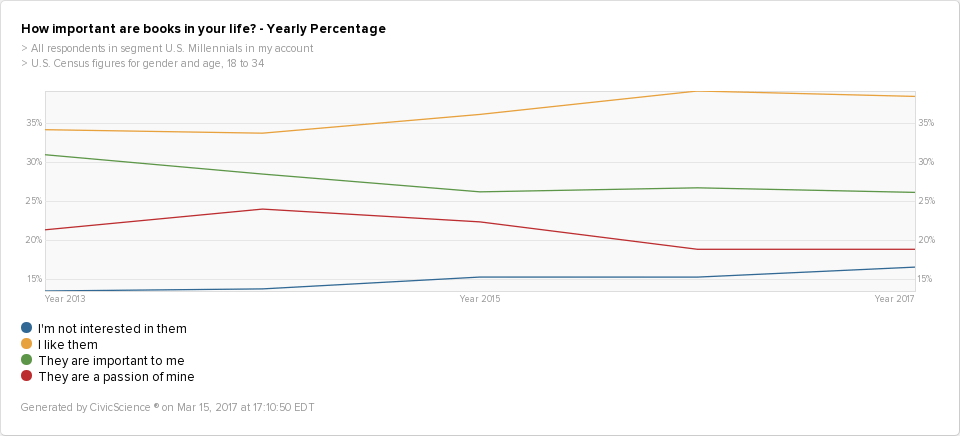Empathy: the action of understanding, being aware of, being sensitive to, and vicariously experiencing the feelings, thoughts, and experience of another of either the past or present without having the feelings, thoughts, and experience fully communicated in an objectively explicit manner.
Millennial empathy is on the decline and a lack of interest in books may be to blame.
It’s well-researched that there’s a correlation between reading and empathy. Reading strengthens your empathy muscles by requiring the reader to put himself into the characters’ shoes and see the world from an alternate perspective for a while.
Knowing this, it’s no surprise to us that a strong percentage of the people that said books don’t play an important role in their lives are less likely to be able to see both sides of an argument. They are also less inclined to associate with people with differing opinions from their own.
Likewise, people who profess a passion for books are more likely to see both sides of an argument and even more likely to enjoy interacting with people with differing opinions from their own.
It seems simple enough–read more, empathize more–but maybe there’s more to this than we’re really seeing.
Back in February we posted this article, indicating a decrease in Millennial empathy. We found that the number of Millennials answering “no” to being able to see both sides of an argument increased by 5% between November 2016 and January 2017.
Now we’ve begun to see a similar increase in Millennials answering that books are not important to them, and coincidentally, an increase Millennials who say they don’t enjoy interacting with people with differing opinions from their own.
With a decrease in reading among Millennials, it appears that the age group that’s most connected through social media and texting may actually start becoming more disconnected from each other’s inner experience.
Of course, it’s hard to tell if the spike in people preferring not to interact with people with differing opinions is related to the recent divisive political season. It’s also a strong possibility that the combative political climate has made people more headstrong and therefore less likely to be willing to see both sides of an argument.
But what does this mean for us if the trends we’re seeing continue?
Could putting more value on reading really help the members of this generation remember how to walk in another’s shoes? The data certainly seem to imply it could.
One thing we can say for certain is that we can all stand to be more empathetic with one another, and it may all start with doing the assigned reading.
Interested in similar insights? Check out our recent posts on office spaces and happiness, Donald Trump and the New York Times, or the correlation between cosmetic surgery and Instagram.










